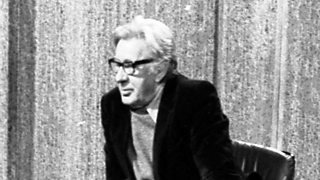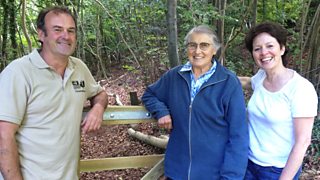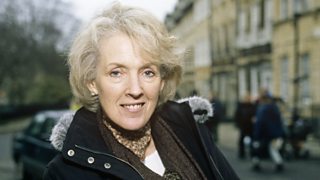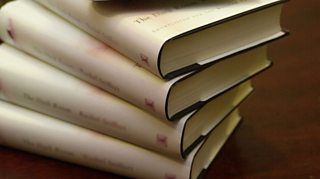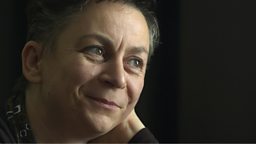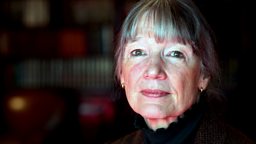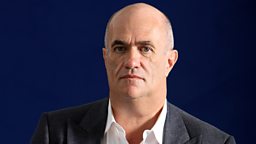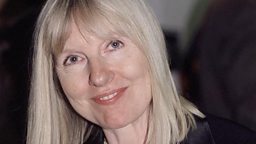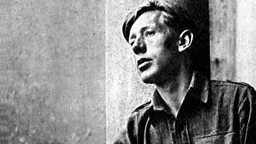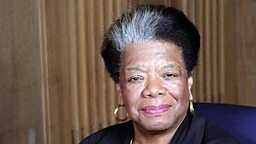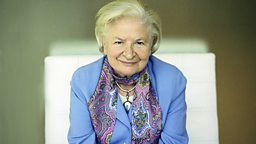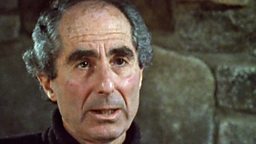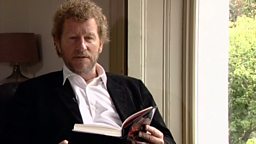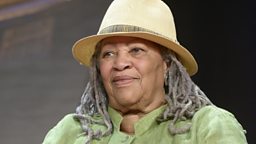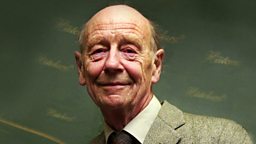Laurie Lee
June 2014 marked 100 years since the birth of Laurie Lee. The poet, journalist, and author who is best known for his sequence of autobiographical books, Cider With Rosie, As I Walked Out One Midsummer Morning and A Moment of War.
From the archive
-
![]()
In this extended interview recorded prior to his death in 1997, Lee observes his “scatty and brilliant, eccentric but fascinating madcap mother” struggling on the breadline to look after her large brood of children, in a time he later described as “the end of a thousand years of village life”. He also discusses his exploits during the Spanish Civil War and the interview ends with a fascinating close reading of one of his poems.
-
![]()
In the year of his centenary, Jessy Lee reflects on her father’s talent and her own relationship with his work. Has she ever been tempted to follow Laurie’s epic routes? Yes, she has but has only managed it in a camper van so far! She also discusses his lyricism, his facility with language and his particular deftness at conveying a sense of place - one of the qualities for which he is most revered.
-
![]()
Helen Mark explores the recently safeguarded 'Laurie Lee Wood' and meets the people who inhabit the 21st-Century 'Cider With Rosie' landscape. Gloucestershire Wildlife Trust had an unprecedented response to its appeal to save the plot of woodland which had once belonged to Lee but which had become too much for the author and playwright's remaining family to maintain.
-
![]()
In this clip from Radio 4’s Open Book series The Book I’d Never Lend, Joanna Trollope speaks of her devotion to Lee’s first memoir, a book she says she read obsessively for 15 years. For Trollope, Cider With Rosie is a chronicle of a world that was about to disappear, not only through the introduction of the motor car but also because it takes place on the eve of the Great War.
Find out more
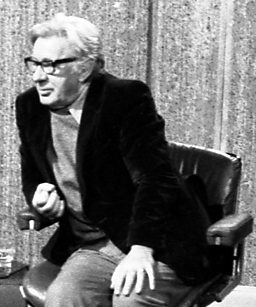
About the author
Laurie Lee was born in 1914. He grew up in the village of Slad, Gloucestershire, and Cider with Rosie (published in 1959) charts his early years there.
Read More
Aged 19 he waved goodbye to his mother, walked to London, stayed a year, then embarked on a longer journey through Spain, which is recorded in As I Walked Out One Midsummer Morning (1969).
Lee was rescued by a Royal Navy destroyer rescuing British citizens from the coast of Spain at the outbreak of hostilities of the Spanish Civil War and returned to England.
In 1937 after crossing the Pyrenees alone in a snowstorm, he made it back to Spain to seek out the Republican International Brigade and fight against Franco, but not before being imprisoned by Spanish Republicans. This period is caught in the final part of the trilogy, A Moment of War (1991).
Lyrical, evocative, droll, As I Walked Out One Midsummer Morning affirms Lee as a great walker-writer. Yes, he simply set out from home with a bag and a violin, thinking that a bit of busking would pay his way.
It more or less did, with the violin crumbling from over-use many months later in Malaga. But by now the joy and brightness of the open road had faded, and signs of civil war had began to impose themselves around him. He moved, as he says, from ‘a romantic haze’ to ‘a taste more bitter’.
Though he is most famous for his memoirs, Lee was a lifelong and committed poet. His first collection, The Sun My Monument, was released in 1944 and was followed by two further collections, The Bloom of Candles (1947) and My Many Coated Man (1955). All of Lee’s prose is richly infused with that poetry.
Simon Richardson, 91�ȱ� Readings Unit
-
![]()
Discover the best of books and authors from 91�ȱ� Arts
